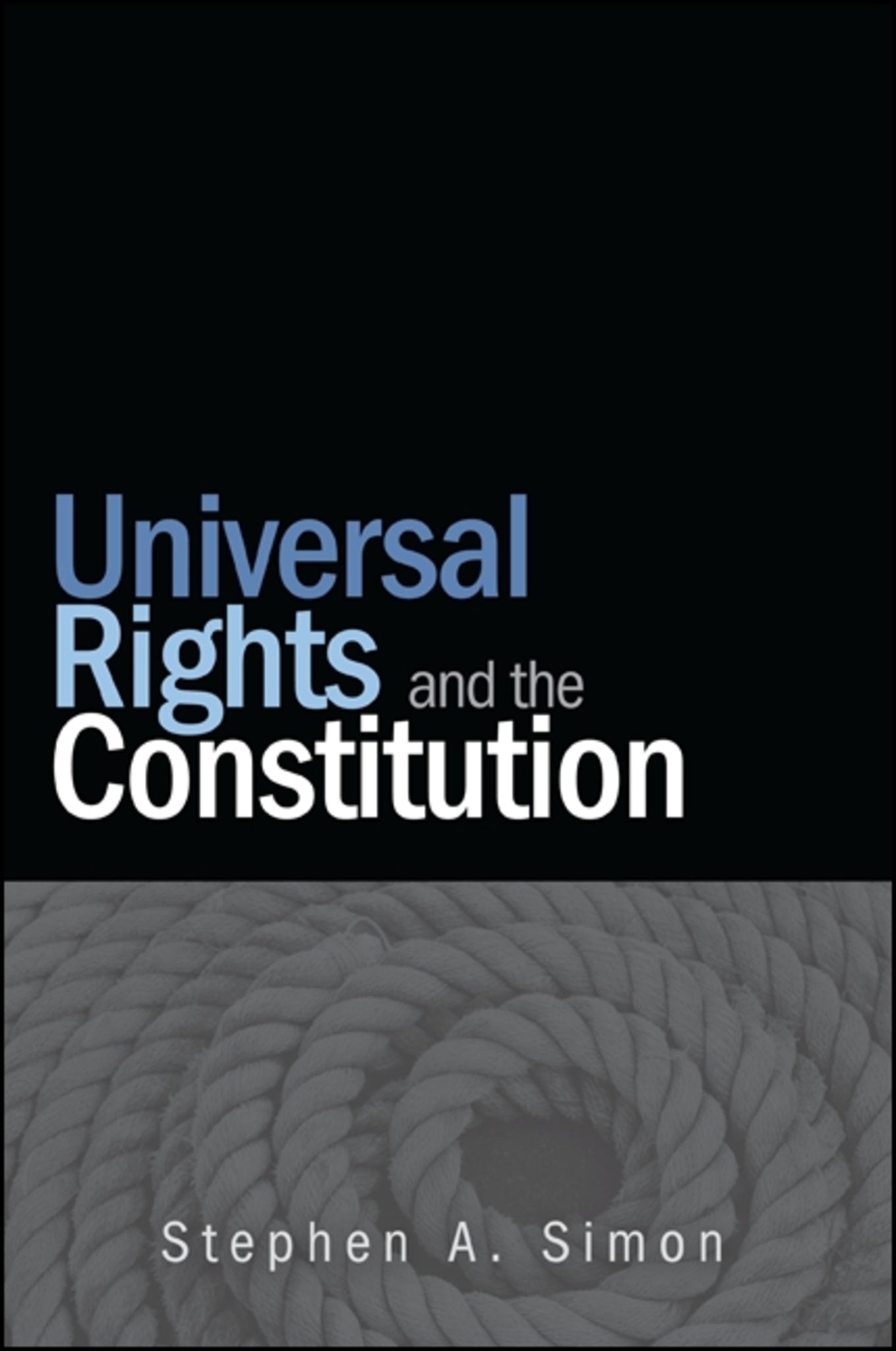We're sorry. An error has occurred
Please cancel or retry.
Universal Rights and the Constitution

Some error occured while loading the Quick View. Please close the Quick View and try reloading the page.
Couldn't load pickup availability
- Format:
-
02 January 2015

Innovative examination of the tensions between universal and more uniquely American definitions of cherished rights.
Are constitutional rights based exclusively in uniquely American considerations, or are they based at least in part on principles that transcend the boundaries of any particular country, such as the requirements of freedom or dignity? By viewing constitutional law through the prism of this fundamental question, Universal Rights and the Constitution exposes an overlooked difficulty with opinions rendered by the Supreme Court, namely, an inherent ambiguity about the kinds of arguments that count in constitutional interpretation, which weakens the foundations of our most cherished rights.
Rejecting current debates over constitutional interpretation as flawed, Stephen A. Simon offers an innovative framework designed to provide clearer foundations for rights interpretations while preserving a meaningful but limited role for universal arguments. He reveals the vital connections among contemporary debates over such matters as the right to privacy, the constitutionality of the death penalty, and the role of foreign law in constitutional interpretation.


"…a fascinating new book … This volume, one of the latest in the esteemed SUNY series in American Constitutionalism, concerns the crucial question of how to interpret the Constitution in cases where individual rights are at stake. Simon's work is original, eclectic, well argued, and thoroughly researched. His book will be of great interest to scholars and nicely repays a careful reading." — Law and Politics Book Review
"Well written, clearly organized, and informative." — CHOICE
Acknowledgments
1. Introduction
2. Universal Arguments in American Constitutionalism
3. Universal Arguments in Constitutional Law
4. Universal Arguments in Constitutional Theory
5. A Role for Universal Arguments
6. Conclusion: Universal Rights Discourse
Note
References
Index



